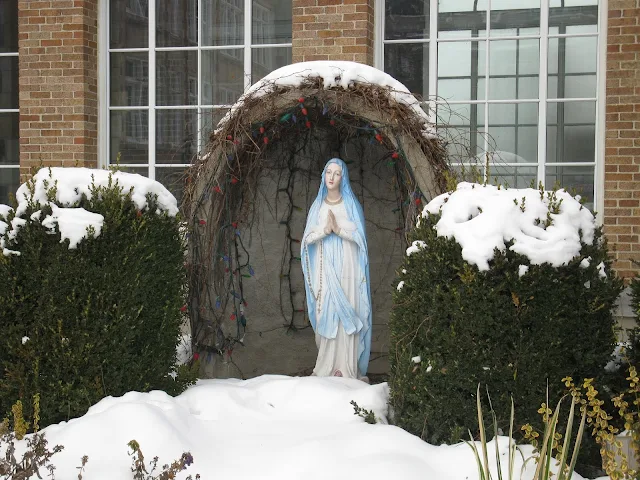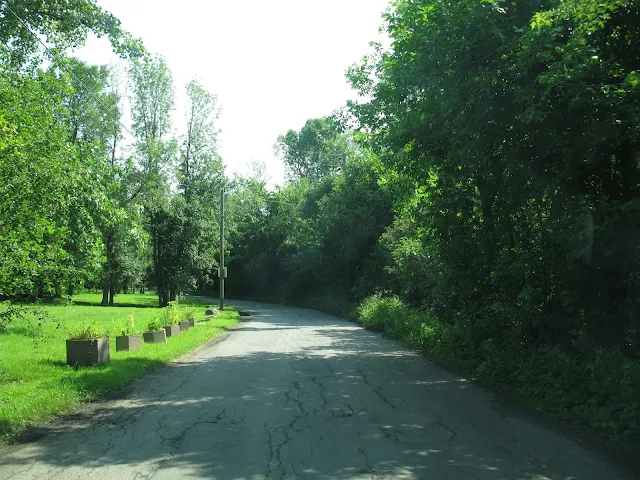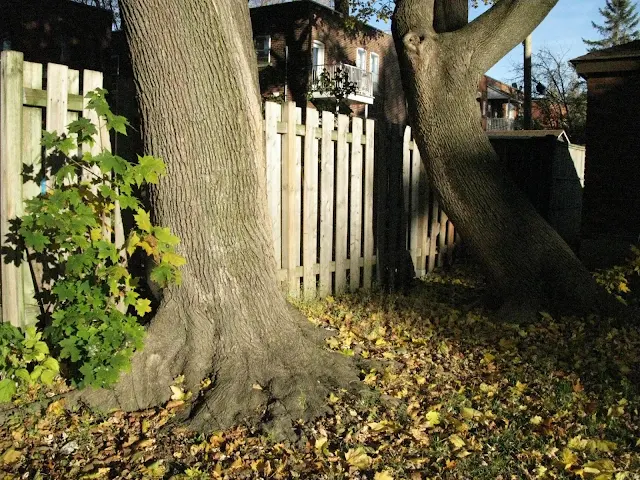
Poems, which are the spiritual blood of a poet,
Renew
themselves in an eternal April,
And
renew us also who take them into ourselves.
Thus
the poet becomes as one of the gods
And
in the church of the poem we communicate.
—A.J.M
Smith, "In Memoriam: E.J.P. 26 April 1964"
Poems, New & Collected, p. 142
1.
I've been thinking about A.J.M. Smith's poetry
lately, longer than "lately", maybe a few years and I'm still divided
re. if I like it or not. Smith grew up on Chesterfield Avenue in Westmount and
my friend Paul Leblond also grew up on Chesterfield, across the street from
Smith, but that was thirty years later (long after Smith had moved down to the
States). This reminds me that Paul's father, Dr. C.P. Leblond, who was head of
the anatomy department at McGill, was famous for his
discovery of stem cells. Up to a few years ago if you had a doctor educated at
McGill they would have been at one time a student of Dr. C.P. Leblond. He
didn't retire from McGill until the early 2000s and I remember Paul telling me
of his visits, as a child, to his father's office in the Strathcona Anatomy and
Dentistry Building. His office was two stories and had previously been the
office of Dr. Hans Selye, famous for his studies of stress and distress. In
1943 Dr. Selye had commissioned Marian Dale Scott to paint a mural in his
office and a few years after that this became Dr. Leblond's office. The mural
is entitled "Endocrinology" and is 12' by 16', enormous. At any rate,
as we all know, Marian Dale Scott's husband, F.R. Scott was good friends with
A.J.M. Smith from the mid-1920s and they formed the Montreal Group of poets who
brought modern poetry to Canada.

2.
If I read someone I like, or someone who
interests me, then I'll read everything they've written including whatever has
been written about them. A.J.M. Smith's Poems,
New & Collected (1967) is probably the first book of poems that I ever
bought; I still have reservations about his work but (as we say) such is life.
It's difficult to find much on Smith's life, for instance did he have any
siblings? Maybe this shouldn't matter but I am a nosy Parker, literally since
my mother was a Parker, and I have a lot of
the old Irish police detective in me that likes to figure things out. Years ago
I found a copy of Smith's anthology (he is an excellent anthologist) Seven Centuries of Verse, English and
American, From the Early Lyrics to the Present Day (1947). The book's
inscription suggests that Smith had at least one possible sister, Dorothy
Brown, and that she lived in or near Huntingdon, QC. Maybe this is common
knowledge but it was new to me. Smith is pretty closed mouth about his personal
life. The Huntingdon High School is now a grade school and where my grandsons
are students. Another anthology edited by Smith, this time with M.L Rosenthal
of NYU, is Exploring Poetry (1955).
If every home should have several good poetry anthologies (which I believe)
then these two would fit the bill. Smith and Rosenthal are from a time when
poetry really mattered, they aren't writing out of an ideology or an attempt to
exploit something that is timeless, they are writing out of love for poetry.
For this reason alone I'll continue reading Smith's poems and when I find
something by Rosenthal I'll buy it and discuss it here.

3.
I had forgotten about English Poetry in Quebec (McGill University Press, 1965) which I
read in high school. The idea for the Foster (Quebec) Poetry Conference
originated with A.J.M, Smith and Frank Scott and was organized by John Glassco
(who also edited the proceedings, as pictured). It's interesting that the idea
for this conference came from three members of the Montreal Group of Poets,
they helped bring Modern poetry to Canada back in the 1920s; this ongoing
involvement in poetry also emphasizes their
literary importance. It's interesting that the Foster Poetry Conference was
held in October 1963, just two months after the Vancouver Poetry Conference
held at UBC; for different reasons both poetry conferences are important in
Canadian literary history and it might be worthwhile to discuss these events
together. These older Quebec poets were not stodgy old men, they believed in
the importance of poetry; this is especially true in the essays by Smith and
Layton, both of whom have a passion, urgency, and intelligence in their discussion
of poetry. For background information on the conference read Brian Busby's excellent biography of John
Glassco, A Gentleman of Pleasure: One Life of
John Glassco, Poet, Memoirist, Translator, and Pornographer (2011), it's one of the best literary biographies that I've read.

4.
I
write the date inside the book that I am reading and I see that I read A.J.M.
Smith's On Poetry and Poets (NCL,
1977) in July 1980. The whole book is a fascinating discussion of Canadian
poetry. In some ways it reminds me of John Sutherland's Essays, Controversies and Poems (NCL, 1972) but also of Louis
Dudek's book reviews, criticism, and commentaries on poetry. In Smith's book
there are two essays that need to be mentioned; the first is "The
Confessions of a Compulsive Anthologist" written in 1976; this is about as
autobiographical as you'll get from A.J.M. Smith and you can see his passion
for poetry was present even when he was a high school student reading a poetry
anthology under his desk. The second essay was given at the Foster Poetry Conference,
it is "The Poet and the Nuclear Crisis" (1965). He concludes this
essay by writing "it is the arts and the humanities, and particularly
poetry, the most humane of all the arts, that can offer that education in
sensibility and virtue that we must submit to if we are to live." That's
the kind of passionate statement that leads me to read more of Smith's writing.
In fact, passion is something we don't talk about these days, maybe passion
sounds naïve and if so, then we need more passion among our poets. So, let's
talk about something that people don't talk about anymore and that is passion,
and passion includes enthusiasm and a sense of urgency regarding the importance
of poetry. It is passion in a poet's work that changes people, it makes the
reader realize he or she is in the presence of something greater than what is
normally experienced. When I was seventeen years old and an apprentice poet I
read Allen Ginsberg's statement that poets should "Scribble down your
nakedness. Be prepared to stand naked because most often it is this nakedness
of the soul that the reader finds most interesting." With this one
statement Ginsberg changed my life. Where are the poets of passion today? There
are no Earle Birneys, no Al Purdys or Dorothy Livesays, no Alden Nowlans or
Gwendolyn McEwens. Where are the poets who change the reader's life because
that is what real poetry does, it changes one's life. Our most passionate poet,
Irving Layton, has become a solitary historical figure, a voice that is no
longer listened to. Smith's passion
makes his poetry and criticism worth returning to and reading.
NOTE: The conclusion of this was published on this blog in July 2019 under the title "A Reappraisal of A.J.M. Smith".

















































